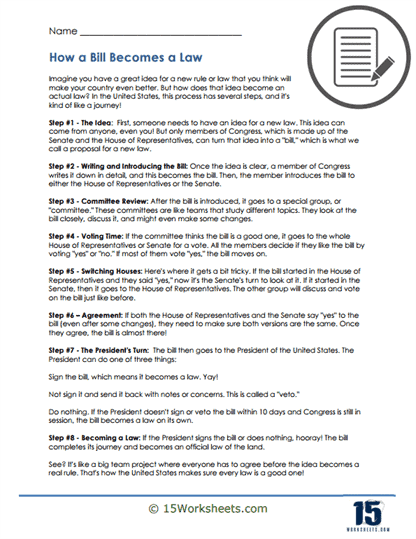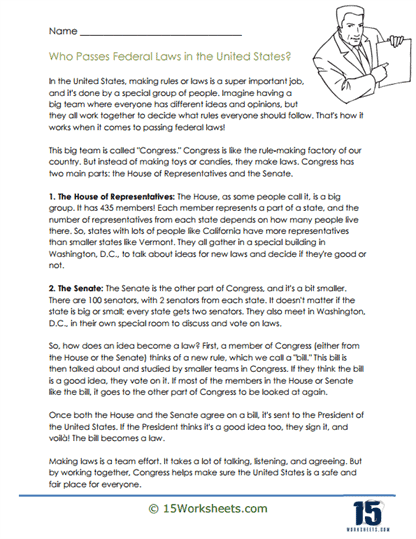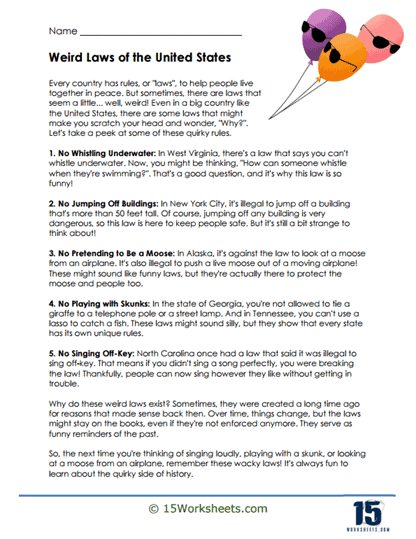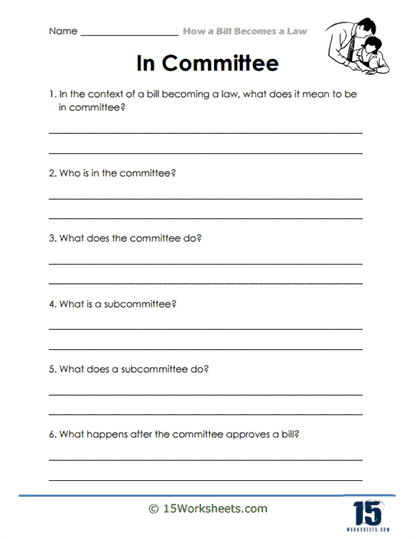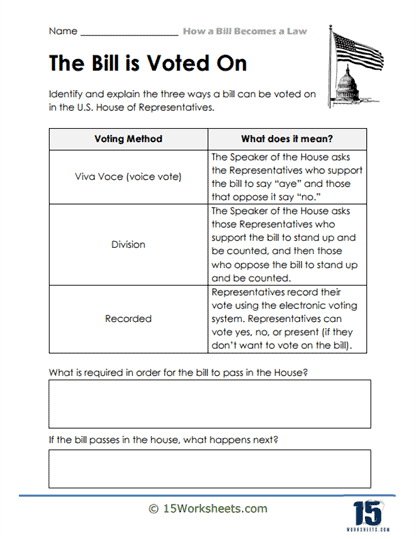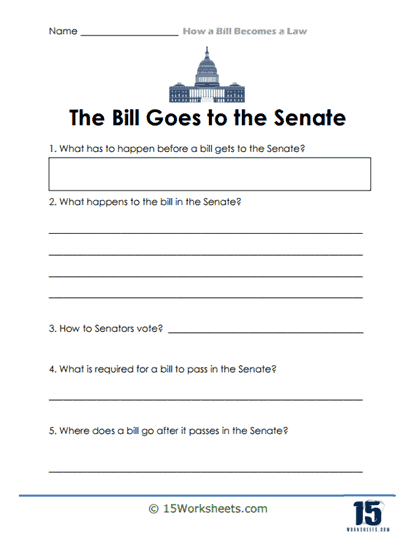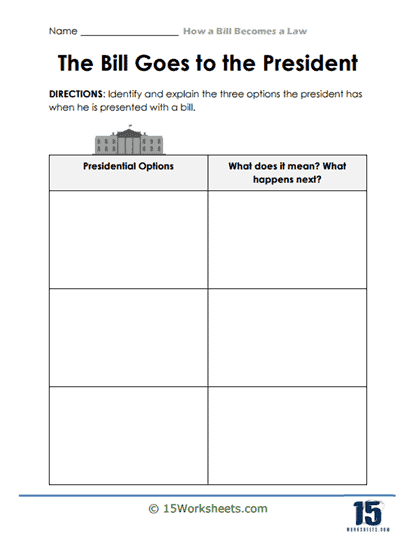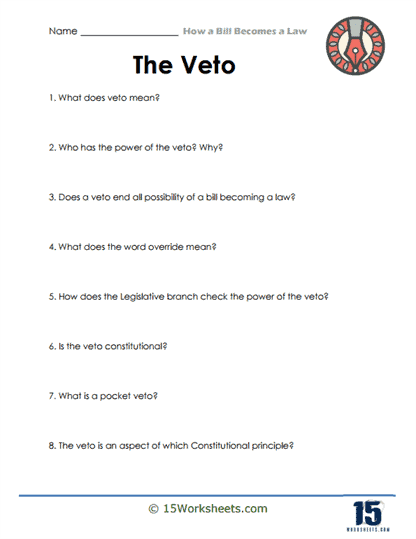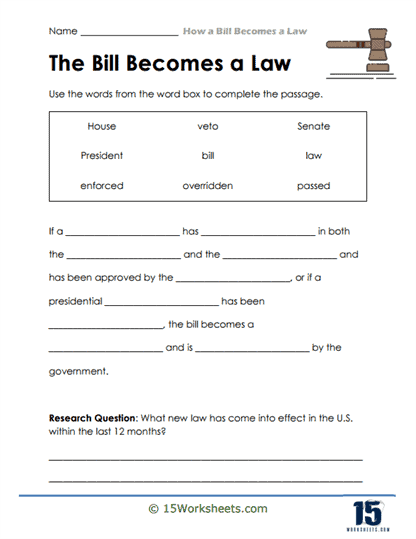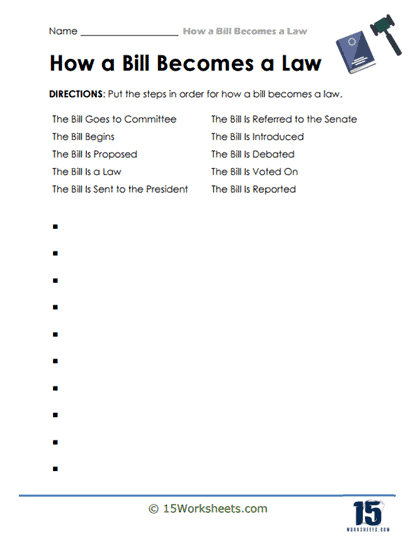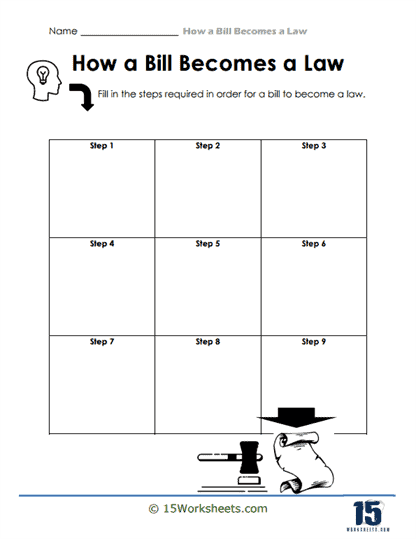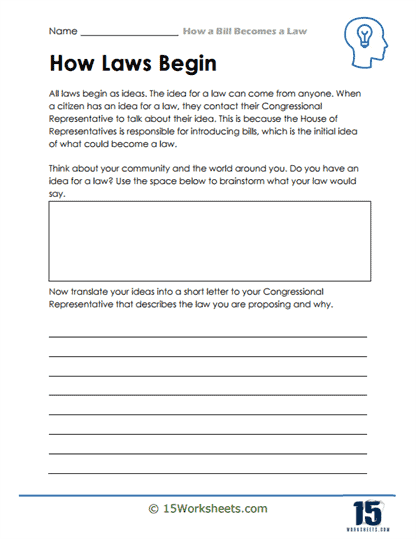How a Bill Becomes a Law Worksheets
About These 15 Worksheets
These worksheets will guide students through the multi-step legislative process in which a bill, a proposed piece of legislation, navigates various hurdles to potentially become a law. These worksheets elucidate the stages, challenges, and considerations inherent in this process, offering insights into the workings of representative democracy.
One of the most intricate processes in democratic governance is the creation of laws. At its core, this procedure signifies how a society’s values, needs, and aspirations are translated into binding regulations. In the United States, the journey of an idea transforming into law is a multifaceted one, embodying the principle of checks and balances.
Types of Exercises On The Worksheets
Sequential Ordering – A foundational exercise might require students to arrange the steps of the legislative process in the correct sequence, from a bill’s introduction to its potential enactment into law. Visual aids can be invaluable in breaking down the complexities. Students might fill in flowcharts detailing a bill’s path, identifying potential points where a bill might be modified, stalled, or terminated.
Scenario Analysis – Students could be presented with hypothetical bills and asked to predict or decide its journey, factoring in considerations like political climate, public opinion, or potential amendments. Assessing foundational knowledge, these questions might focus on the roles of committees, the differences between the House and Senate procedures, or the president’s options upon receiving a bill. Breaking down infographics, charts, or diagrams related to specific high-profile bills or the legislative process in general can provide another layer of comprehension.
Case Studies – Analyzing real-life bills and their trajectories, students can discuss factors contributing to their success or failure and the broader implications of their enactment or rejection. Students might simulate Congressional sessions, debating, amending, and voting on mock bills, offering hands-on insights into the legislative process.
Discussion and Debate – Guided topics could focus on contemporary legislative controversies, the role of partisanship, or the influence of public opinion on the passage of bills. Encouraging deeper reflection, prompts might ask students to discuss challenges in the legislative process, the ethics of lobbying, or the balance of power between branches in law-making.
The Value of These Worksheets For Students
Understanding the mechanics of law-making is pivotal for informed citizenship. This knowledge empowers students to engage in the democratic process, from voting to advocating for or against specific legislation. The legislative process is replete with nuances, negotiations, and strategic decisions. Analyzing its intricacies sharpens students’ analytical skills and promotes critical thinking.
Legislation impacts every facet of society, from the economy and education to civil rights and public health. Grasping how laws are made equips students to understand and engage with current events and policy debates. The legislative process, with its complexities, can seem distant and opaque. Breaking it down demystifies governance, making it more accessible and relatable.
Learning how a bill becomes a law underscores the principle of checks and balances, as different branches and chambers must collaborate (and sometimes contend) to legislate. Knowledge is power. Understanding the legislative process can empower students to advocate for causes they’re passionate about, be it by drafting proposals, lobbying representatives, or rallying public support.
For those considering careers in public service, law, policy analysis, or related fields, an understanding of the legislative process is invaluable.
Beyond the mechanics of law-making, these worksheets introduce students to the principles, challenges, and responsibilities inherent in representative democracy. By understanding how society’s aspirations, needs, and debates translate into tangible laws, students not only gain civic awareness but also develop an appreciation for the values and principles that underpin the democratic process.

